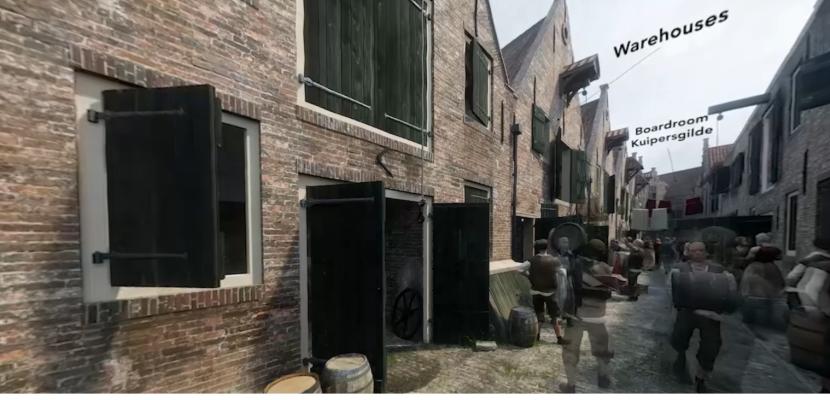
Enhancing Sustainable Tourism in Middelburg through Digital and Virtual Experiences

About this good practice
Middelburg's digital and virtual tourism initiative addresses the challenge of balancing tourism growth with sustainability. With over 500,000 annual overnight stays and millions of day visitors in Zeeland, the region seeks to reduce tourism-related CO₂ emissions while enhancing visitor experiences. The municipality, in collaboration with ICT specialists and tourism stakeholders, developed immersive virtual experiences using 360° video, VR platforms, and AR tours. These initiatives provide alternative and complementary ways to explore heritage sites, such as the Abdij, Zeeuws Museum, and Zeeuws Archief, reducing physical travel and congestion while promoting cultural heritage.
The platform is hosted by the municipality, integrating scattered initiatives into a cohesive digital strategy. Commercial tourism businesses also develop their own digital strategies, while external ICT firms provide expertise. The main stakeholders include the municipality, local tourism operators, technology providers, and visitors. Beneficiaries include tourists, SMEs, and local authorities seeking to promote sustainable tourism while maintaining economic growth.
Expert opinion
Resources needed
The virtual tourism initiative costs approx. €14,750 for three (museum) public spaces, covering production, post-production, and direction. Hosting costs €500 per year. Implementation involved the municipality, commercial ICT firms, and tourism operators, requiring specialised digital expertise.
Evidence of success
This practice is considered good as it enhances accessibility while reducing environmental impact. Zeeland hosts nearly 22 million tourist nights annually, with Middelburg attracting over 500,000 visitors. If 10% of tourists opted for virtual experiences instead of physical travel, 1,500 tonnes of CO₂ is saved per year, based on average transport emissions alone. Virtual tourism also ensures year-round cultural access and supports local businesses.
Potential for learning or transfer
This practice is valuable for other regions as it demonstrates how digital and virtual tourism can enhance accessibility, reduce environmental impact, and support local businesses. Key success factors include strong municipal involvement, collaboration with ICT experts, and integration into a wider digital strategy. The practice is highly transferable, with clear cost structures and scalable implementation. Challenges include securing SME participation and ensuring engaging content. If integrated strategically, virtual tourism can redirect visitor flows, reduce congestion, and lower CO₂ emissions. The concept has strong potential for replication in heritage-rich cities across Europe. Middelburg’s model can inspire municipalities seeking to balance tourism growth with sustainability, particularly in regions facing high visitor numbers and environmental pressures. Transfer opportunities are being explored, with potential interest from other Dutch municipalities.
